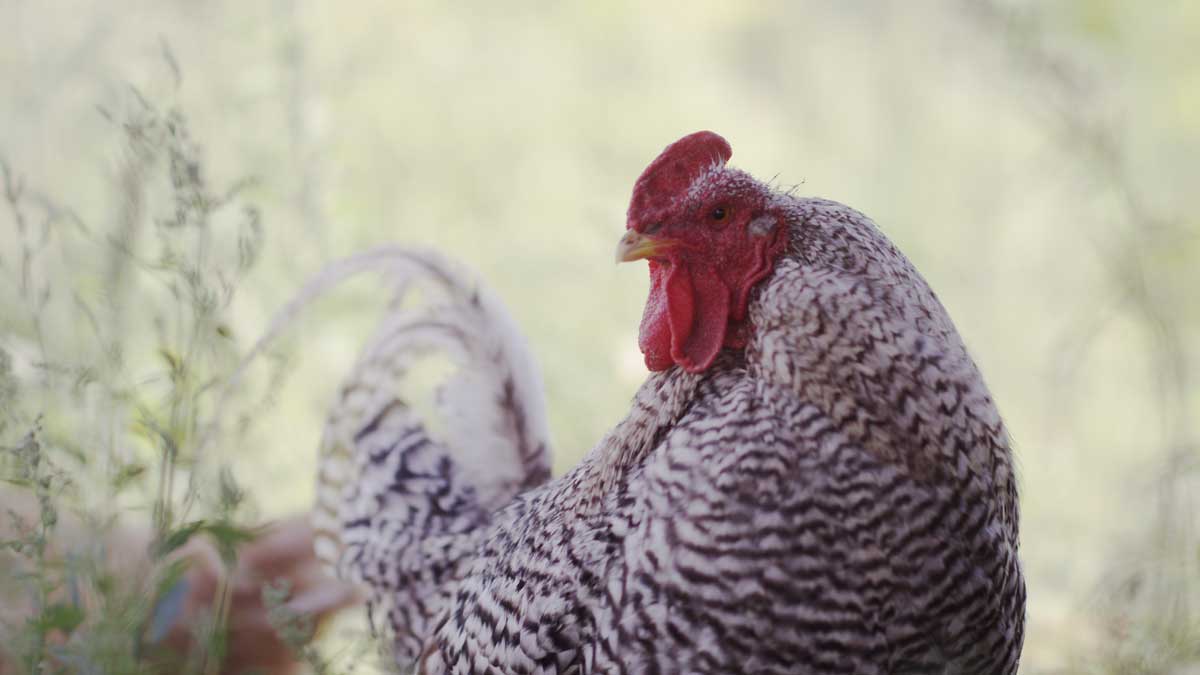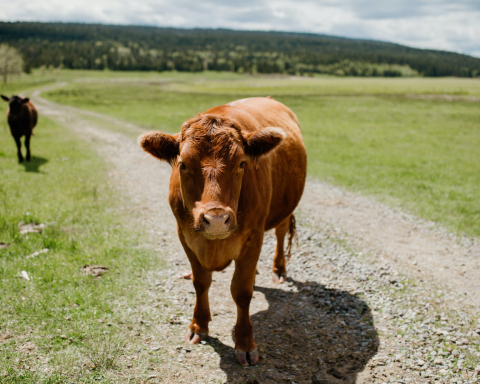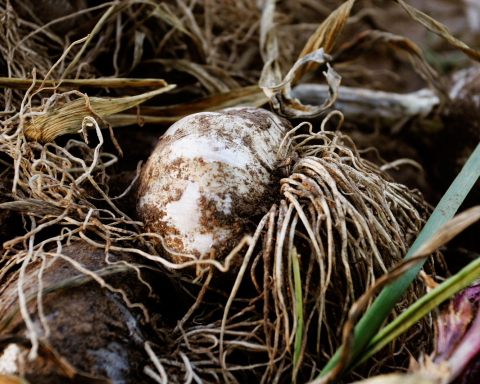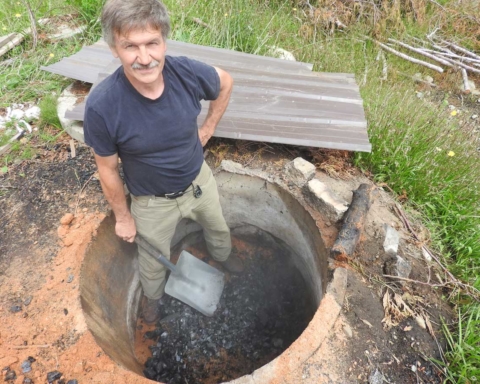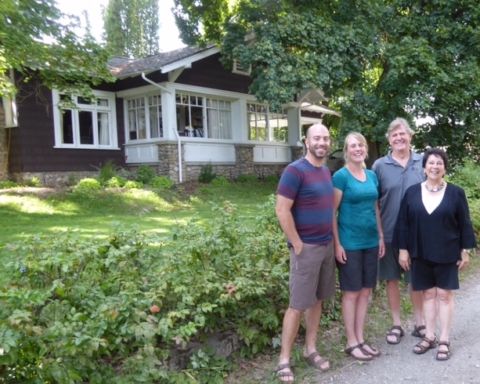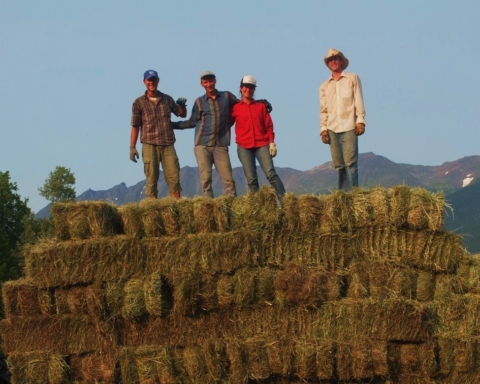Caitlin Dorward, Caroline Chiu & Kent Mullinix (Institute for Sustainable Food Systems, Kwantlen Polytechnic University) and Clayton Botkin (BC Ministry of Agriculture)
BC’s Fraser Valley is recognized as a major centre for commercial and supply-managed poultry production including layers, broilers, and turkeys. Also prevalent in this area is a small-scale poultry sector; the BC Ministry of Agriculture estimates that there are as many as 10,000 small flocks in the Fraser Valley alone. Many are “backyard” flocks kept for personal egg production or for direct-market egg sales from the farm gate. Some are kept by poultry fanciers dedicated to breeding and showing. No longer solely a rural pursuit, small backyard flocks are now allowed (subject to bylaw stipulations such as lot size) in many BC municipalities including Victoria, Kelowna, Kamloops, Vancouver, City of North Vancouver, Delta, Port Coquitlam, Surrey, and Maple Ridge.
Although the Fraser Valley’s 10,000 small flocks, at an individual level, account for few birds compared to the numbers kept in commercial operations, they play an important role in the local food system – and their small scale does not exempt them from the same poultry health and biosecurity concerns faced by the commercial sector. During the highly pathogenic avian influenza (HPAI) outbreak in December 2014, for example, the disease was detected in two backyard flocks.
Recognizing that small lot poultry producers also benefit from training in biosecurity and health management best practices, the Ministry of Agriculture and the Institute for Sustainable Food Systems (Kwantlen Polytechnic University—KPU) recently partnered to host a four-part “Keeping Your Flock Healthy” course at KPU’s Langley campus. This free course held over four two-hour sessions was intended for owners of small flocks looking to learn more about poultry diseases and ways to prevent them. Course instructors included Clayton Botkin (Industry Specialist, Poultry and Regulated Marketing, BC Ministry of Agriculture) and Dr. Victoria Bowes (Avian Pathologist, BC Animal Health Centre, BC Ministry of Agriculture), both North American experts in their fields. Dr. Daniel Schwartz (Canadian Food Inspection Agency) was also a guest presenter.
Those who attended came from across Metro Vancouver and the Fraser Valley and were small flock poultry owners who kept chicken as a hobby, for business, or for home consumption. Attendees expressed interest in learning more about disease management, general flock health, required lab tests, application of organic practices, protection against predators, information sources, licensing, scaling up, and industry regulations.
Considerations in Caring for Your Small Flock
Food Safety
From a food safety perspective, the food-borne illness salmonella is one of the biggest concerns for egg producers of all scales. Currently, testing of eggs for direct-market sale is not required, but of course providing safe, healthy eggs is a goal for all small-scale farmers, and testing for Salmonella should be a consideration. As such, small-scale egg producers should be aware of the risks posed by salmonella and how to mitigate them. For example, cracked or soiled eggs including those laid outside of the nesting box should never be sold or consumed. Egg candling and proper egg washing routines should also be implemented.
Chicks & Fertile Eggs
When it comes to small flock health, the source of chicks or fertile eggs is an important starting point. Small lot producers should take time to get to know any hatchery or other source from which their chicks are purchased. Ask questions about the hatchery’s quality control program, salmonella monitoring, vaccinations, health programs and accountability process. Before choosing breeds for your flocks, do some research about what breeds are appropriate for your area’s climate and for the purpose of your operation (e.g., egg production, meat production, etc.).
Small Flock Housing
The session included an introduction to poultry production and small flock housing. Newcomers to small flocks were able to take advantage of an introduction to poultry production and small flock housing. If you have a small flock, it’s important to seek out the regulations pertaining to small flocks and direct marketing of eggs, including the supply management or “quota” system – and learn about keeping your flock, premises, and product healthy.
Poultry housing is also a critical factor for small flock health. As a rule of thumb, remember that proper housing for your birds is just as important to their health as your own home is to yours! A simple checklist that can be used to evaluating the quality of poultry housing for all breeds is: Feed, Litter, Air, Water, Sanitation, and Security (FLAWSS). Use this checklist as a starting point but also familiarize yourself with any specific needs or housing requirements of the breeds in your flock to ensure you can provide them.
Diagnosing Disease
According to Dr. Bowes, a basic understanding of poultry anatomy (parts) and physiology (purpose/ function) can help small and large flock owners diag- nose, or at the very least notice, potential health prob- lems in their flock so that they can be addressed on site or brought to the attention of your veterinarian. The most common poultry diseases can be caused by viruses, bacteria, and parasites, and include avian in- uenza, E. coli, and mites.
4 Strategies that Prevent Disease
Strategies to limit the spread of disease are another important aspect of small flock management. Small flock owners need to conduct a critical examination of the premises where their flock is kept in order to identify potential points of pathogen entry. Once you have identified these points, you can develop and implement strategies to minimize the chance that disease causing organisms will gain entrance. In general, developing such a biosecurity protocol entails the following steps:
- Access management: reduce the risk of pathogens being carried into and out of the flock premises
- Health management: ensure that the flock is in good health, from chick to slaughter
- Operational management: assure all procedures of your operation enable management of the health and well being of the ock and premise; barn area is always clean
- Know and understand the procedures: be up to date with any issues and ensure that everyone involved with managing the flock and premise know the procedures for proper management.
The workshop concluded with information about techniques for humane euthanasia and plenty of time for questions from participants to the workshop instructors.
A small poultry flock can be the perfect business model, or a great way to produce your own food. No matter your goal, understanding how to promote the health and wellness of your flock is in your best interest, as well as the birds!
Resources
The “Keeping Your Flock Healthy” course is presented annually by the Ministry of Agriculture. If you are interested in attending a future course, or would like to be added to a contact list for small flock poultry related information and events, contact Clayton Botkin at clayton.botkin@gov.bc.ca.
Copies of the Small Flock Manual distributed to course participants.
General information and resources about poultry in B.C.
Information on Avian influenza outbreaks in Canada, including the December 2014 outbreak in B.C., and advice from the Canadian Food Inspection Agency, on how to prevent and detect disease in backyard flocks.
The Institute for Sustainable Food Systems at Kwantlen Polytechnic University supports regional food systems through applied research, extension, and community engagement. Reach out for more information about our work or if you are interested in partnering with us on an event or project.
Photo credit: Thomas Buchan


